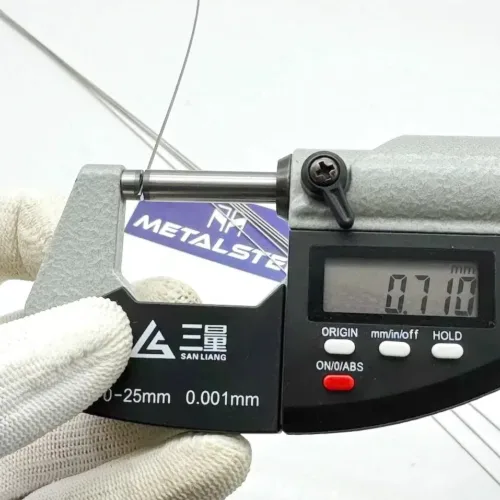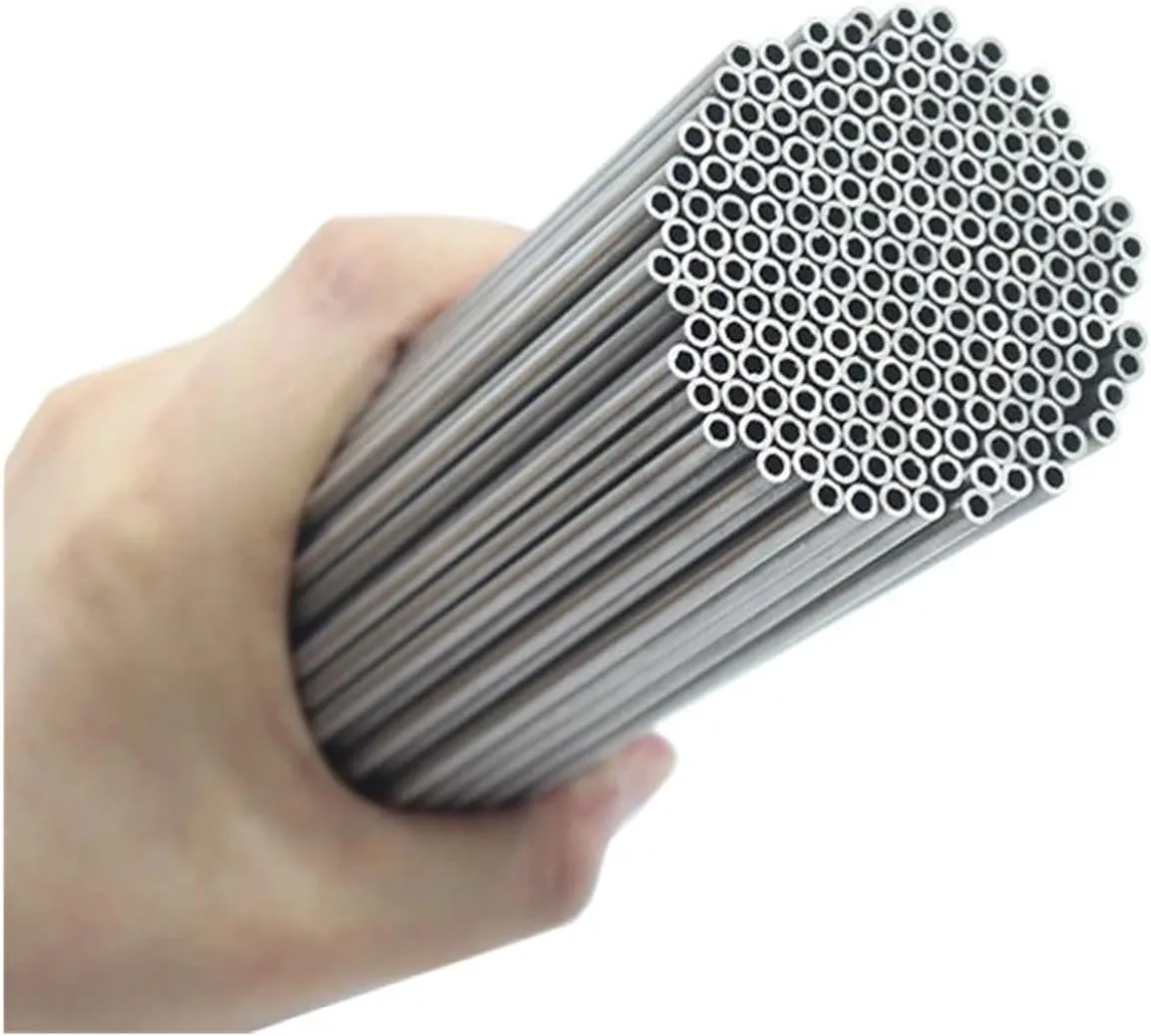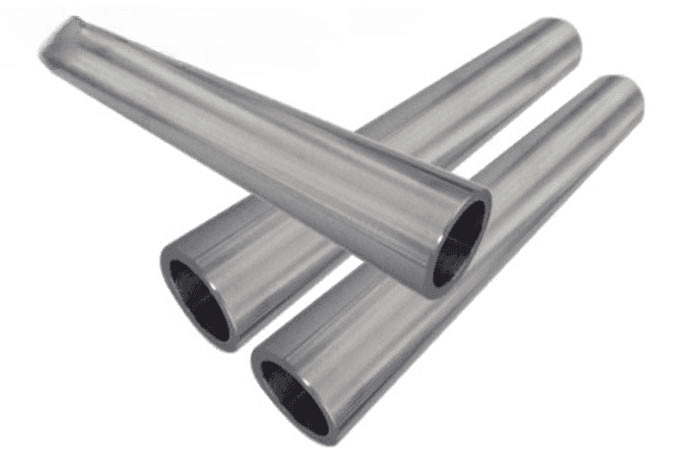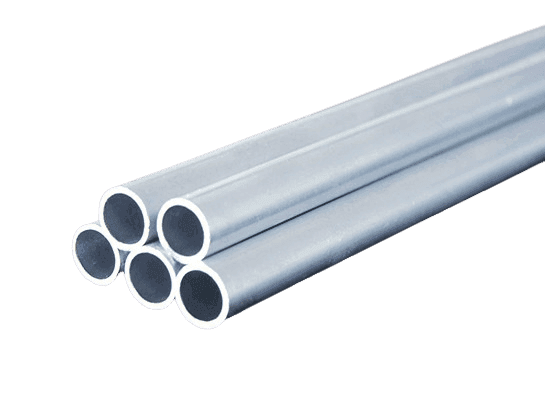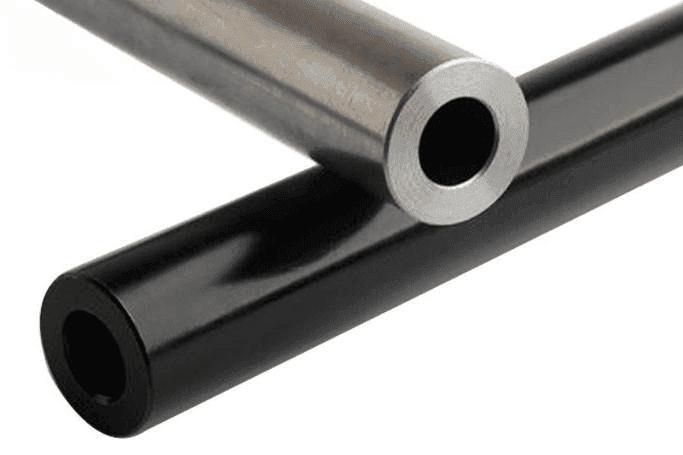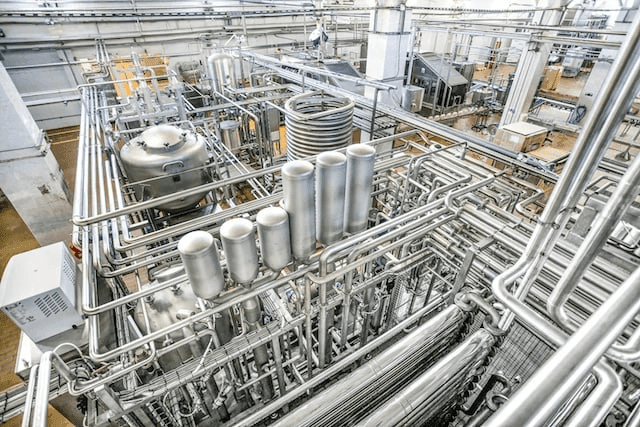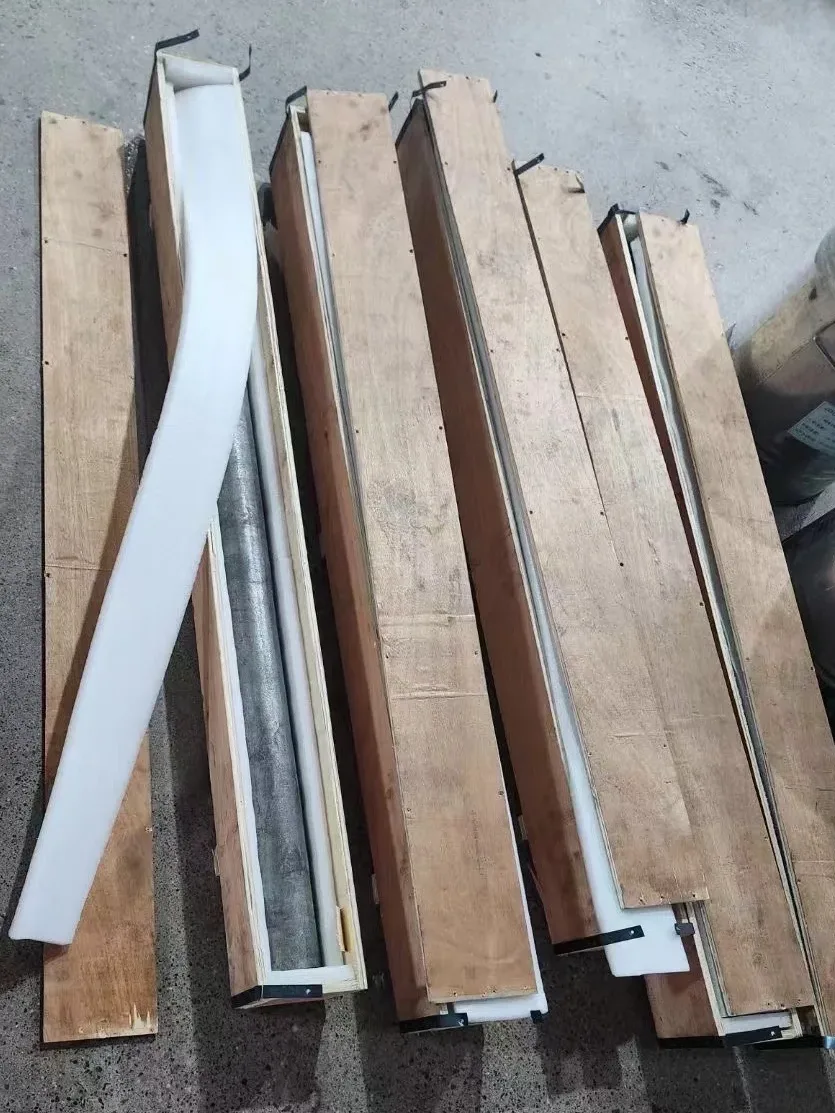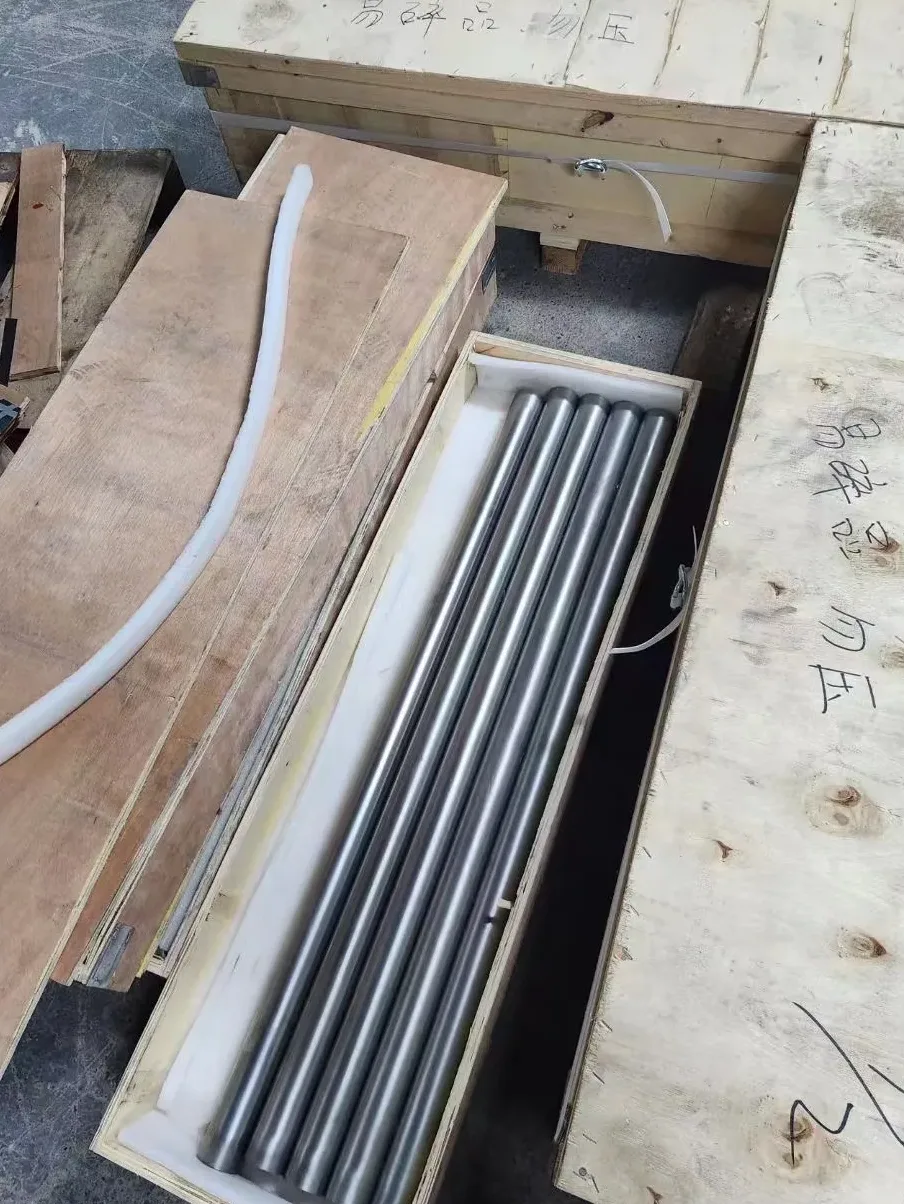A Comprehensive Guide to Nickel Tubes and Capillaries: What You Need to Know
Imagine a material that can withstand temperatures so extreme that most metals would melt into a pool of liquid. This isn’t the stuff of science fiction—it’s the reality of tungsten crucibles. Used across high-tech industries, from aerospace to electronics, tungsten crucibles are essential for processes that push the limits of heat and harsh environments.
Table of Contents
Chapter 1
Introduction to Nickel Tubes

Nickel tubes and capillaries are critical components widely used across various industries due to their unique properties. These materials are primarily made from nickel alloys, known for their excellent resistance to corrosion, high temperatures, and oxidation. Nickel tubes, including nickel seamless pipes and nickel welded tubes, are particularly valued in industries such as aerospace, automotive, and chemical processing, where reliability is paramount.
In the aerospace sector, nickel alloy tubing serves vital functions in components that require high strength and resistance to extreme environmental conditions. For instance, high-purity nickel tubes are commonly used in fuel systems and other critical applications, as they offer the durability necessary for operation in high-stress environments.
The automotive industry also extensively utilizes nickel pipes for fuel lines and coolant systems, given their resistance to corrosion and exceptional thermal stability. Components made from nickel 200 pipes or nickel 201 tubes are particularly advantageous because they maintain mechanical properties even at elevated temperatures, ensuring long-lasting performance and safety in vehicles.
In chemical processing, nickel capillary tubes are favored due to their ability to resist acidic and alkaline substances. This characteristic makes them suitable for transporting aggressive fluids without the risk of degradation, thereby ensuring the integrity and reliability of the processing equipment. Furthermore, the use of corrosion-resistant nickel pipes enhances safety and efficiency in various applications.
Understanding the different types of nickel tubes and their respective applications is essential for professionals working in these industries. Knowledge about nickel alloy tubing can aid in selecting the most appropriate material for specific needs, ensuring optimal performance and longevity of the components in demanding environments.
Chapter 2
Key Considerations When Purchasing Nickel Tubes

When purchasing nickel tubes, several critical factors must be considered to ensure you select the appropriate product for your needs. One of the foremost considerations is the specifications of the nickel tube, which include size, wall thickness, and length. The diameter and dimensions of the nickel pipe are vital, as they must fit the application requirements and machinery in which they will be used. Additionally, the wall thickness is important for strength and durability, particularly in high-pressure applications where the tube may be subjected to extreme conditions.
Pressure ratings also play a significant role in the selection of nickel alloy tubing. It is important to understand the pressure levels that the nickel seamless pipe or nickel welded tube will encounter in operation. These ratings help determine the suitable thickness and type of nickel alloy required, ensuring that the pipe can withstand operational conditions without failure.
Furthermore, the intended application and environmental conditions are necessary to consider when purchasing high purity nickel tubes. Different applications may necessitate different grades, such as nickel 200 pipe or nickel 201 tube, based on their specific corrosion resistance and mechanical properties. For instance, if the nickel tube will be exposed to harsh chemicals or extreme temperatures, a corrosion-resistant nickel pipe is essential for optimal performance and longevity.
Moreover, understanding the industry standards and certifications associated with nickel tubing can also be beneficial. Ensuring compliance with relevant regulations and quality control measures can safeguard against the use of inferior products in critical applications.
All these considerations will ultimately aid in selecting the most suitable nickel tube for your requirements, ensuring efficiency and reliability in your projects.
Chapter 3
Common Misunderstandings About Nickel Tubes
Despite the widespread use of nickel tubes and their essential role in various industries, several misconceptions persist regarding their properties and applications. One prevalent misunderstanding is that nickel alloys, particularly nickel seamless pipes, are not durable. In reality, nickel tubes possess exceptional mechanical properties that enhance their strength and endurance. Nickel 200 pipe and nickel 201 tube, for instance, are known for their robustness, making them suitable for high-stress environments. These materials can withstand elevated temperatures and pressures, which adds to their reliability.
Another common misconception revolves around the corrosion resistance of nickel pipes. While it is true that some metals are more prone to corrosion, nickel itself is inherently resistant to many corrosive agents. High purity nickel tubes and corrosion-resistant nickel pipes are designed specifically to excel in environments where chemical exposure is a significant concern. Industries such as chemical processing and marine applications benefit greatly from the corrosion resistance provided by nickel alloy tubing, allowing for a longer lifespan and decreased maintenance costs.
Furthermore, many individuals incorrectly believe that nickel capillary tubes are only suitable for specific applications. On the contrary, these tubes are versatile and can be utilized across a range of industries, including pharmaceuticals, food processing, and petrochemicals. The flexibility in size and form allows for the customization of nickel welded tubes to meet varied application requirements, negating the notion that they are limited in utility.
In addressing these misunderstandings, it is essential for buyers and manufacturers to consider the full spectrum of capabilities and applications of nickel tubes. Solid knowledge of the characteristics of nickel, including its corrosion resistance and durability, plays a pivotal role in making informed purchasing decisions, ensuring that the selected materials meet the demands of specific operational environments.

Chapter 4
The Production Process of Nickel Tubes
The manufacturing of nickel tubes involves a series of intricate processes that ensure the final product meets the required specifications for quality and durability. The primary methods employed in the production of nickel tubes include extrusion, drawing, and machining. Each of these processes has distinct implications for the characteristics of the nickel tubing produced, be it nickel seamless pipe, nickel welded tube, or specialized nickel capillary tubes.
Extrusion is the first step in producing nickel tubes. This process involves forcing heated nickel alloy through a die to create the desired shape and diameter. It is pivotal for producing long lengths of nickel tube, which can then be cut into manageable sections. The use of materials such as nickel 200 pipe or nickel 201 tube is common, as these specific alloys offer a combination of favorable mechanical properties and corrosion resistance, making them suitable for various applications.
The next method, drawing, is employed to further refine the tube’s dimensions. During the drawing process, the previously extruded tube is pulled through dies that reduce its diameter while increasing its length. This method is crucial for enhancing the mechanical strength and surface finish of the tube. The resulting nickel alloy tubing is often characterized by its uniform wall thickness, which is essential in high-pressure applications and contributes to the overall reliability of the tube, be it high purity nickel tube or corrosion resistant nickel pipe.
Lastly, machining may be used for further customization of the nickel tubes. This involves removing material to achieve specific dimensions or to add features such as threading or flanges. The machining process allows manufacturers to fulfill unique customer specifications while ensuring high quality. The final product, regardless of the methodology applied, is a meticulously crafted nickel tube that offers superior performance in challenging environments.

Chapter 5
Types of Nickel Alloys Used in Tube Production
Nickel alloys play a crucial role in the production of nickel tubes and capillaries, providing distinct properties that cater to various industrial applications. Understanding the different types of nickel alloys is essential for selecting the most suitable material for specific needs. Among the most widely used alloys are Nickel 200 and Nickel 201, both of which offer excellent corrosion resistance and mechanical properties, making them ideal choices for chemical processing environments.
Nickel 200, a commercially pure nickel, is known for its exceptional ductility and resistance to heat and corrosion. Its composition allows it to withstand various corrosive media, including acids, which makes it a preferred option for the food and beverage, pharmaceutical, and petrochemical industries. On the other hand, Nickel 201, an improved variant, contains lower carbon content, resulting in enhanced performance in high-temperature environments and further reducing the risk of carbon precipitation.
Another notable nickel alloy is Inconel, which incorporates chromium and molybdenum to enhance strength at elevated temperatures and resist oxidation. Inconel nickel tubes are particularly favored in aerospace and gas turbine applications. Similarly, Monel, an alloy consisting predominantly of nickel and copper, offers outstanding resistance to seawater and acidic conditions, making it suitable for marine and chemical handling sectors.
When selecting the appropriate nickel alloy tubing, considerations such as operating environment, temperature fluctuations, and pressure levels should be taken into account. High purity nickel tubes, for instance, are essential in industries requiring stringent cleanliness standards, including electronics and medical applications. Additionally, nickel seamless pipes and welded tubes provide structural integrity and reliability for various applications due to their superior mechanical properties.
In conclusion, the choice of nickel alloy is critical in tube production, as each alloy possesses unique attributes that cater to specific industrial needs. By understanding the properties of Nickel 200, Nickel 201, Inconel, and Monel, stakeholders can make informed decisions when selecting the appropriate nickel pipe or capillary tube for their applications.
Chapter 6
Quality Standards for Nickel Tubes
When purchasing nickel tubes, it is vital to understand the quality standards and certifications that relate to their production. The most significant standards include those set forth by the American Society for Testing and Materials (ASTM), the American Society of Mechanical Engineers (ASME), and the International Organization for Standardization (ISO). These organizations establish guidelines that ensure nickel products meet the necessary performance and safety specifications.
For instance, ASTM standards are crucial in evaluating the mechanical properties, chemical composition, and quality of nickel alloy tubing. Specific grades such as Nickel 200 and Nickel 201 are often covered under ASTM B161 and ASTM B730, which detail requirements for wrought nickel tubing and nickel seamless pipe. These specifications ensure that manufacturers provide high purity nickel tubes that exhibit superior corrosion resistance, a key feature for applications in harsh environments.
ASME standards also play a significant role in the production of nickel pipes, especially for applications in the industrial and pressure vessel sectors. Adhering to ASME specifications ensures that nickel welded tube and seamless pipe products can withstand the demands of pressure and temperature in various industrial settings, thereby enhancing the reliability and longevity of the materials. Furthermore, compliance with ISO standards assures users of the consistent quality of nickel tubes, reinforcing their suitability in global markets.
By understanding these standards, purchasers can make informed decisions when selecting nickel tubes, ensuring that the products meet industry requirements and regulations. This knowledge not only protects investments but also guarantees that the nickel pipes and capillary tubes used in critical applications will perform reliably in various environments.
Chapter 7
Applications of Nickel Tubes Across Industries
Nickel tubes are essential components utilized in various industries due to their unique properties, including high strength, corrosion resistance, and excellent thermal and electrical conductivity. These attributes make nickel alloy tubing, such as nickel 200 pipe and nickel 201 tube, particularly valuable in applications where materials are subjected to harsh environments.
In the oil and gas industry, nickel seamless pipes are often employed for their ability to withstand extreme conditions and corrosive fluids. These nickel pipes are integral in drilling operations and transportation systems, where durability and reliability are paramount. For example, offshore platforms rely heavily on nickel capillary tubes for instrumentation and control systems, ensuring that the equipment operates effectively and safely.
Moreover, the aerospace sector incorporates high purity nickel tubes in various applications, including fuel and hydraulic systems. The lightweight yet robust nature of nickel alloy tubing aids in enhancing the performance of aircraft while contributing to safety standards. Similarly, in the chemical processing industry, corrosion resistant nickel pipes are indispensable for transferring aggressive chemicals safely, minimizing the risk of leaks and system failures.
The pharmaceutical industry also benefits from the use of nickel tubes, which can provide the necessary clean environments for sensitive processes. Tubing made from nickel 200 or nickel 201 can be found in drug manufacturing and laboratory applications, where contamination must be strictly controlled.
In conclusion, the diverse applications of nickel tubes across industries underscore their significance in addressing unique challenges. The unique properties of nickel tubes, including corrosion resistance and strength, continue to drive innovation and efficiency across sectors, demonstrating their indispensable role in modern manufacturing and engineering. Each industry leverages the benefits of nickel alloy tubing to optimize performance and ensure safety in their operations.

Chapter 8
Maintenance and Longevity of Nickel Tubes
Ensuring the longevity and optimal performance of nickel tubes and related products, such as nickel capillary tubes, requires consistent maintenance and proper handling techniques. Since nickel alloys, including nickel 200 pipe and nickel 201 tube, are prized for their corrosion resistance, it is crucial to adopt practices that maximize these inherent properties. Proper handling should begin at the point of delivery. It is vital to inspect the nickel seamless pipe or nickel welded tube for any visible defects or damages that may have occurred during transport, as such issues can affect the integrity and function of the tubes.
Storage conditions play a significant role in maintaining nickel tube quality. It is recommended to store nickel alloy tubing in a dry, climate-controlled environment to prevent exposure to moisture, which can lead to corrosion over time. Utilizing protective covers or coatings can also shield these components from contaminants. Furthermore, aluminum or wood racks should be used for stacked storage, ensuring that the nickel pipes are supported and protected from mechanical deformation.
Regular inspections should be part of the maintenance routine. This involves checking for surface rust and ensuring that the protective finishes remain intact. If any signs of corrosion are detected, immediate action should be taken. Cleaning with appropriate materials ensures that the nickel capillary tube remains free of dirt and debris that may contribute to corrosion. A maintenance schedule that includes both visual and physical examinations ought to be established.
In conclusion, implementing effective handling, storing, and maintenance practices is essential for prolonging the lifespan of nickel tubes and capillary tubes. Attention to these details ensures that high purity nickel tube and other associated products retain their performance and reliability over time, ultimately leading to enhanced operational efficiency in their applications.
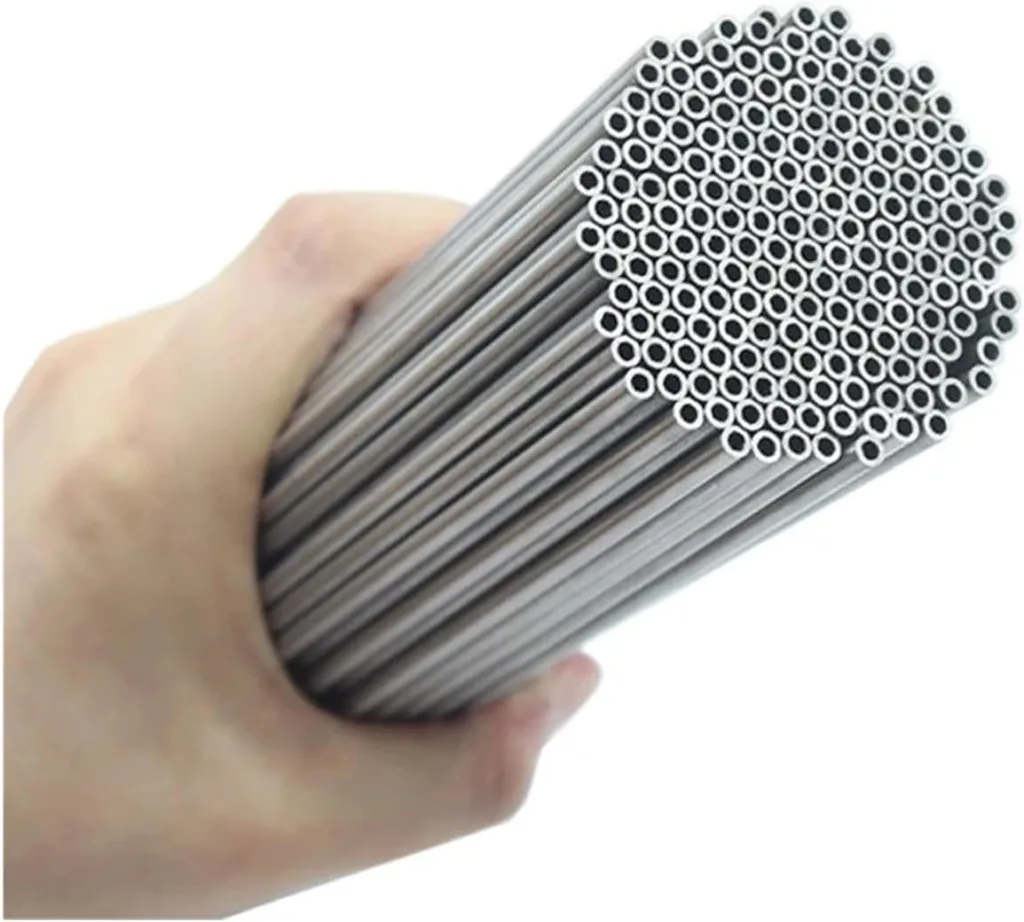
Chapter 9
MetalsTek: Your Trusted Partner for Nickel Tubes
In sum, the significance of nickel tubes and capillary tubes in various industries cannot be understated. They provide crucial advantages, including resistance to corrosion and high temperatures, which are made possible by materials such as nickel alloy tubing. Additionally, the variety of options available, such as nickel seamless pipe and nickel welded tube, caters to diverse application needs, demonstrating the versatility of nickel in manufacturing processes.
As industries continue to evolve, so too does the need for innovative solutions in nickel tube production. Future trends are likely to focus on enhancing the quality and consistency of nickel products, such as the high purity nickel tube. Advances in materials science could lead to the development of new nickel alloys that further optimize performance characteristics. For instance, the introduction of nickel 200 pipe and nickel 201 tube variants may offer specialized properties that can meet stringent industry standards.
Furthermore, sustainability will become increasingly pertinent in nickel tube manufacturing. Efforts to reduce environmental impacts may drive the use of recycled materials and energy-efficient processes in producing nickel pipe and capillary tubes. The industry’s commitment to sustainability may not only help in meeting regulatory standards but also appeal to consumers who prioritize environmentally-friendly practices.
The future of nickel tubes appears promising as advancements in production methods and material innovations unfold. With ongoing research and development, stakeholders can expect enhanced performance from corrosion-resistant nickel pipes while aligning production processes with global sustainability efforts. The ongoing transformation will ultimately lead to improved quality, performance, and eco-friendliness of nickel tubes and capillaries, benefiting a wide range of industries.
At MetalsTek, we take great pride in providing top-notch Nickel Tubes and Capillaries that meet the demanding requirements of today’s industries. Our dedication to quality, coupled with our capability to tailor targets to precise sizes and compositions, positions us as the go-to choice for businesses looking to push boundaries and achieve greatness.

